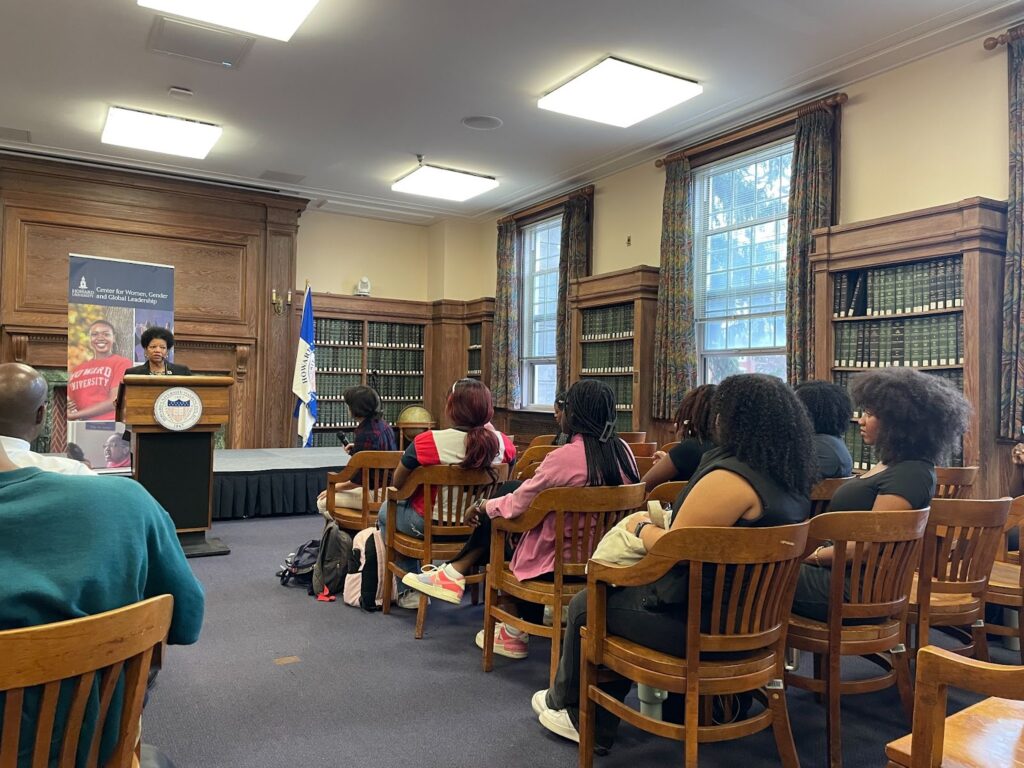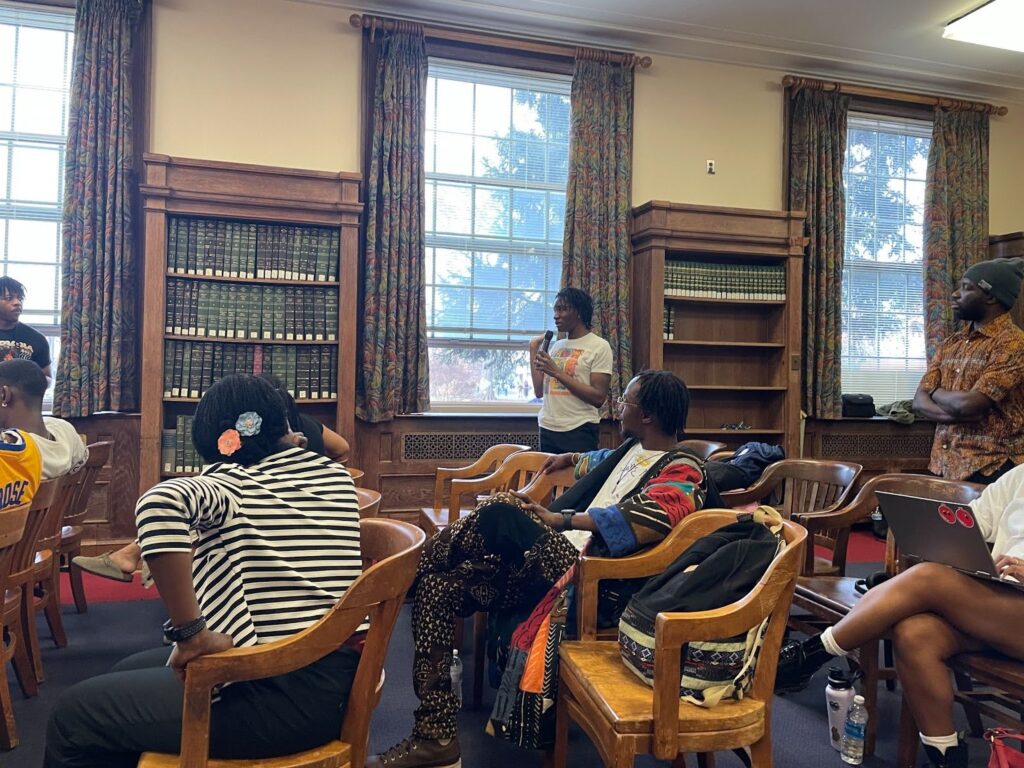
Faculty, students and administrators gathered in the browsing room of Founders Library last week to discuss the recent resignation of Dr. Claudine Gay as president of Harvard University. Many attendees found Gay’s decision troubling and indicative of the challenges that Black women encounter in higher education.
The Jan. 26 ‘chat and chew’ discussion was hosted by the Center for Women, Gender and Global Leadership (CWGGL), a research center created to support the advancement of Black women in the Howard community, according to their website.
Timea M. Webster, associate director of alumni engagement in the Office of Development and Alumni Relations at Howard University, reflected on her past experiences at other institutions to give insight into the shared experiences of Black women.
“What we’re seeing with President Claudine Gay is just a throughline of what we’re seeing with racism, sexism and all the marginalizations of people in power,” Webster said.
Harvard University’s Jan. 2 announcement of Gay’s resignation followed backlash over the institution’s response to the Hamas-Israel conflict, followed by further criticism during a Dec. 5 congressional hearing on antisemitism on college campuses. Subsequently, plagiarism allegations surfaced for Gay, extending to many of her papers, including her doctoral dissertation.
“I knew Claudine Gay was in big trouble the moment that she was pulled into that room,” Webster continued, alluding to Gay’s congressional hearing. “There was nothing that she was going to be able to say that was ever going to quell what was already coming towards her.”
While the majority of the discussion focused on Gay’s resignation, it also delved into the deeper troubles that students and faculty face as Black people and what this may mean for the future of Black leadership.
Moderated by the center’s executive director, Dr. Cassandra Veney, she shared her thoughts on being a Black woman in academia and insights into the experience of others in the academic realm.
Veney reflected on her entry into academia, accepting a teaching job in Illinois where she was the first Black woman hired in the department of political science at this particular institution.
She perceived skepticism from her colleagues, who she believed might have thought she secured the position because “it was an affirmative action hire,” she said.
Veney felt that being labeled as an affirmative action hire unfairly discounted the efforts of marginalized individuals, an ideology she believes inaccurate.
Dr. Joyvina Evans, assistant professor and graduate chair-master of health administration within Howard University’s College of Nursing and Allied Health Sciences (CNAHS), shared her experiences as a Black woman in academia, detailing how it has shaped her teaching style.
“Growing up, I was always told I had to be better than white individuals: ‘You got to work twice as hard,’” Evans said.
Evans emphasizes the importance of self-advocacy among her students, teaching them to set boundaries and understand their motivators. “What is your why? Why are you there?” Evans said.
The discussion also addressed the recent death of Dr. Antoinette “Bonnie” Candia-Bailey, an administrator at Lincoln University of Missouri who died by suicide on Jan. 8. According to NBC News, Candia-Bailey was previously terminated from her position by Lincoln University of Missouri president John Moseley. In a letter to Moseley, Candia-Bailey claimed that she was bullied by Moseley after sharing her struggle with depression.

Jenesis Finks, a senior political science major, suggested implementing more effective Diversity, Equity, and Inclusion (DEI) programs to enhance the protection of marginalized groups in leadership positions.
“There are answers that work better in theory than in practice,” Finks said.
Finks underscored that DEI programs, while implemented with a purpose, might not be effective until individuals who are not people of color acknowledge their importance.
Paul Tiyambe Zeleza, Senior Advisor for Strategic Initiatives and professor at Howard, also addressed the topic during the event, emphasizing the importance of building a ‘network’.
Zeleza shared his experience teaching in Ontario, Canada, as the only Black professor at Trent University, highlighting the value of building a community with other Black professors, which enriched his experience.
“We created opportunities, met with each other, supported each other, cried on each other’s shoulders,” Zeleza said.
He expressed that Claudine Gay’s resignation prompted him to write an article on LinkedIn, delving into its historical connection to the treatment of Black people within academia. His piece, titled “The Claudine Gay Saga and the Dysfunctions of American Institutions and Politics,” was posted on Jan. 15.
Zeleza remarked that many institutions, excluding HBCUs, “were not built for Black people.”
“They have within their DNA almost built a resistance against Black presence, and it is established in terms of ideas, access and, of course, people in those institutions,” he said.
After the ‘chat and chew,’ in an interview with The Hilltop, Dr. Cassandra Veney stressed the importance of these conversations at Howard.
“The center is for the advancement of all black women; when something happens to one of us, it happens to all of us,” she said.
Copy edited by D’ara Campbell

